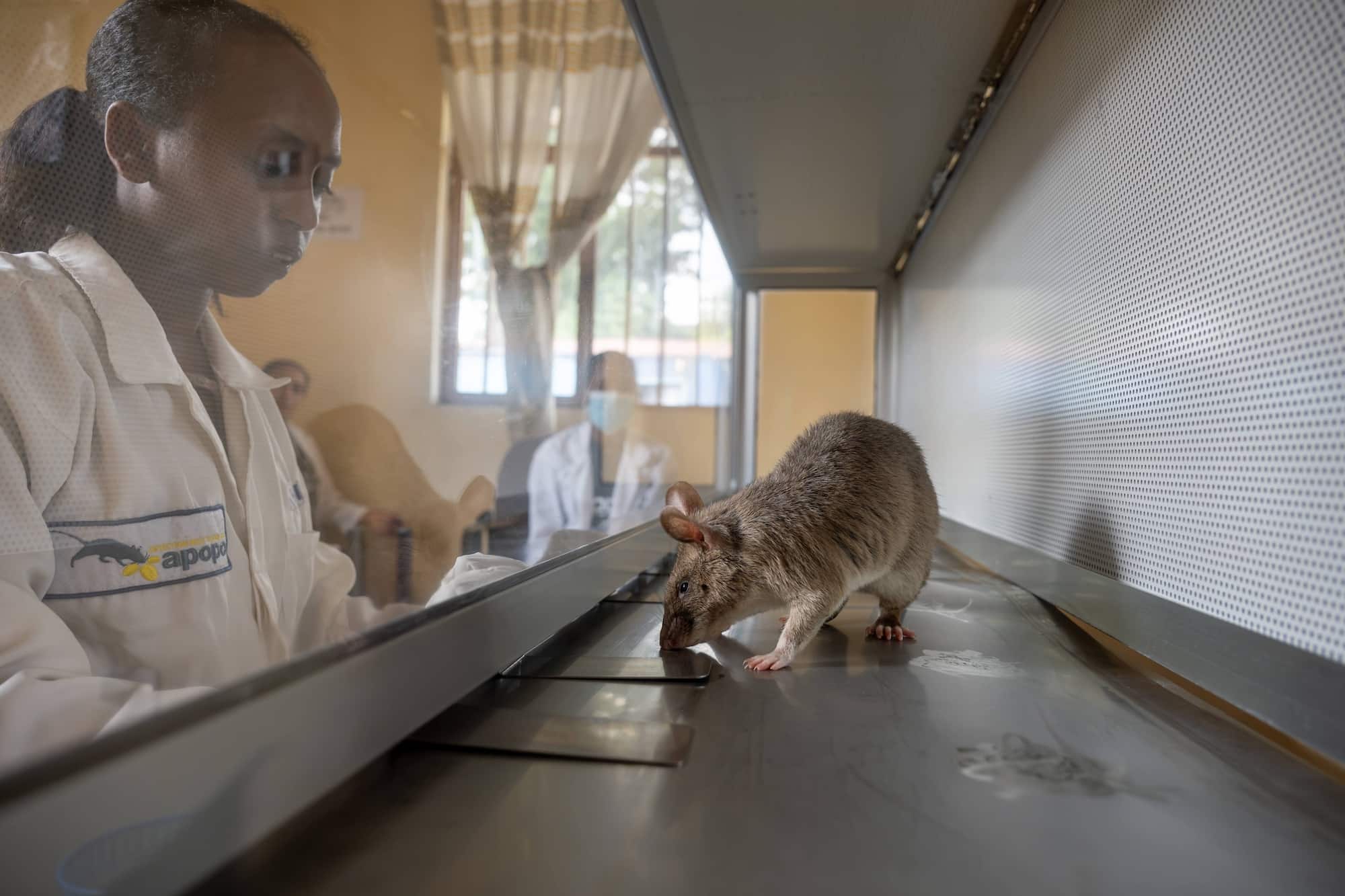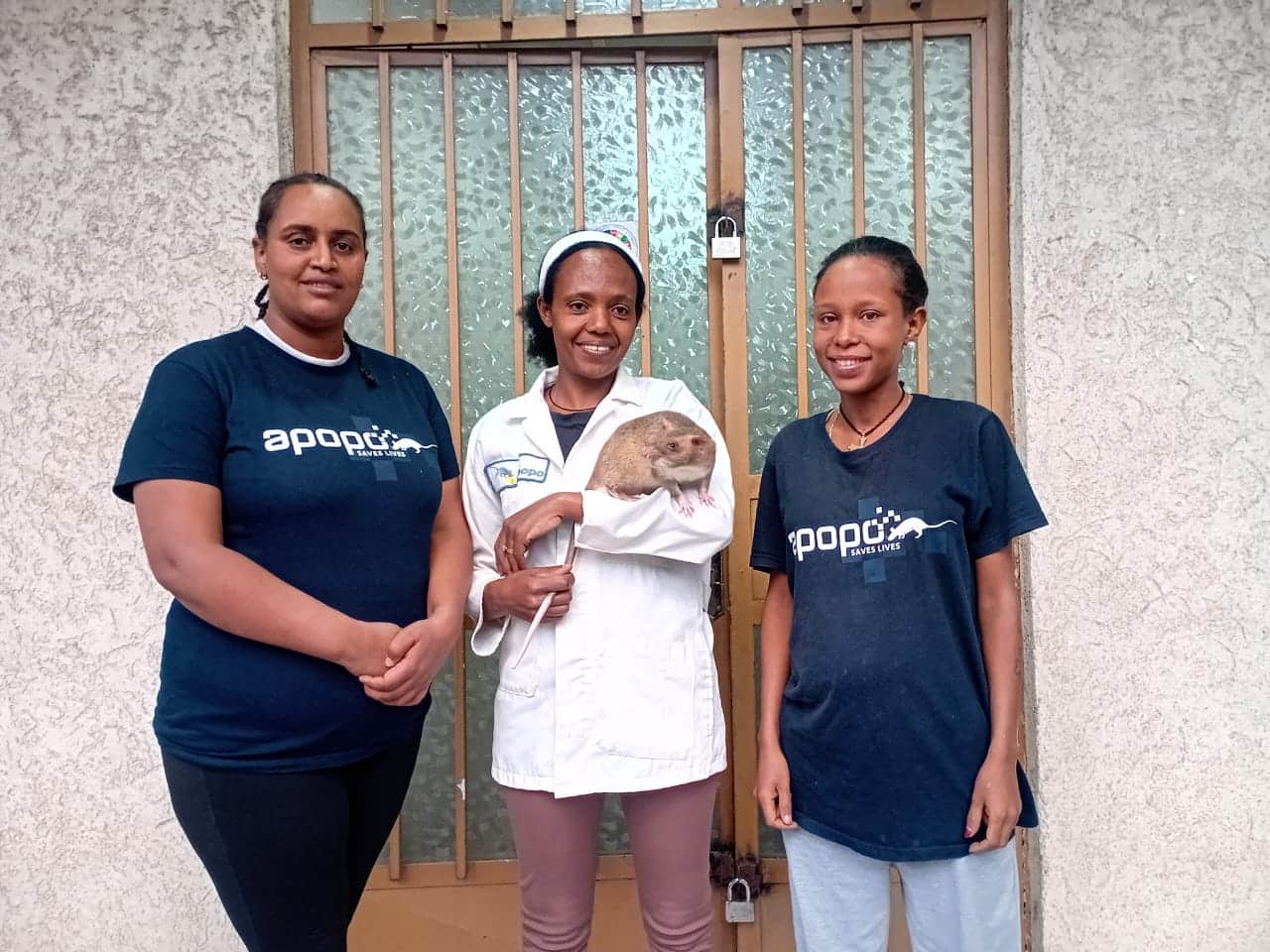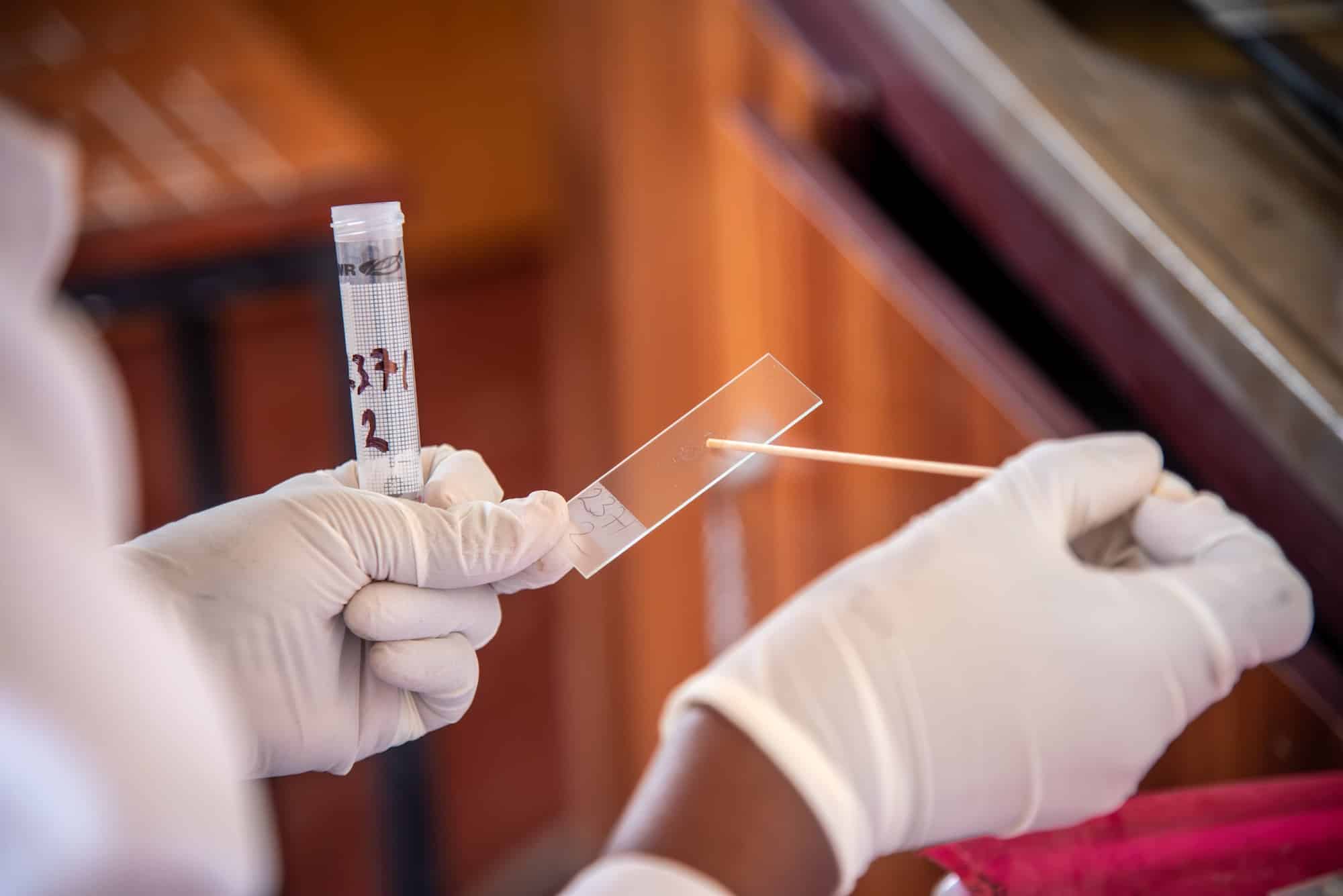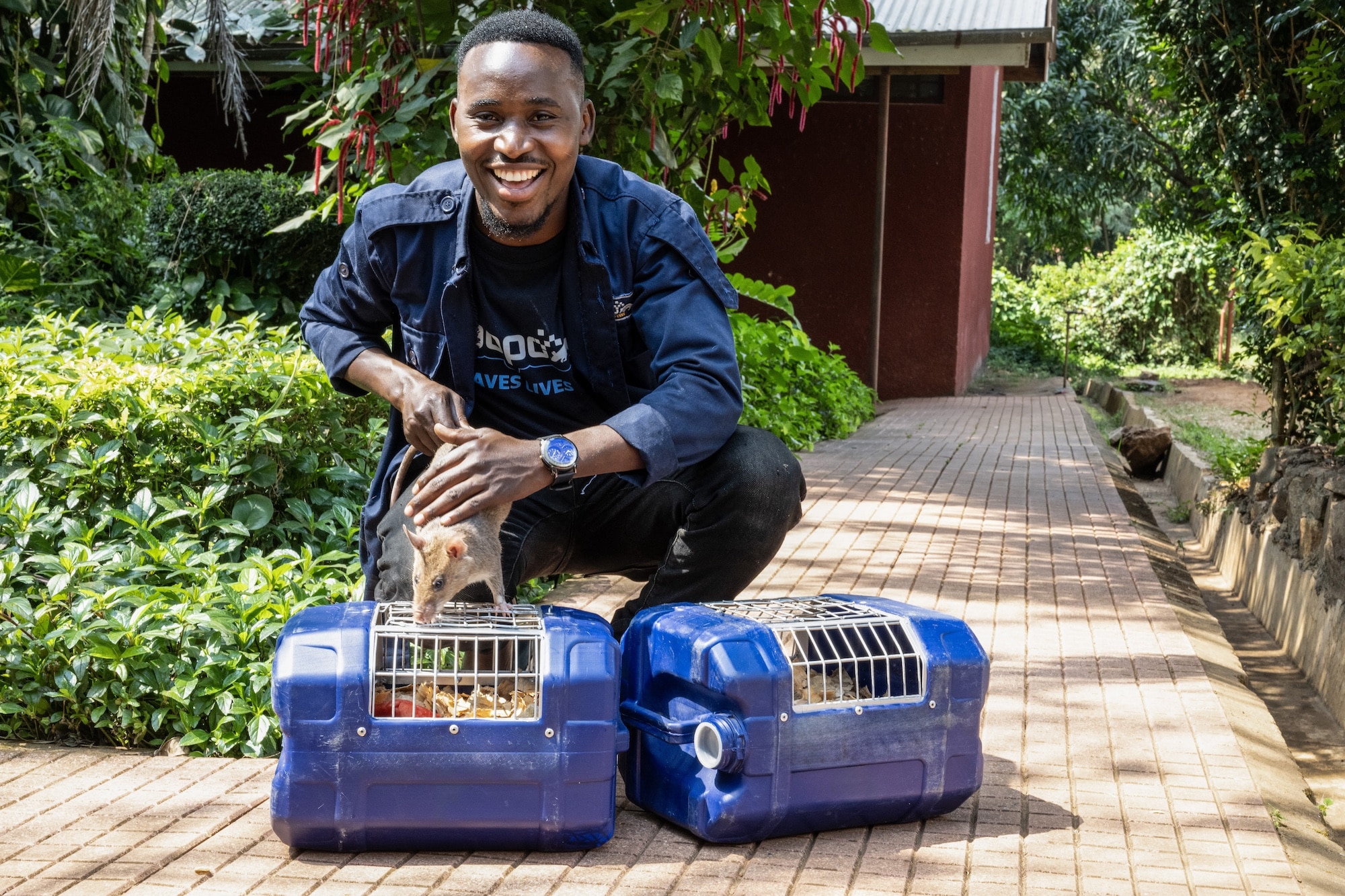July 1, 2025, Addis Ababa — Five newly trained tuberculosis (TB) detection rats have just arrived at APOPO’s TB facility in Addis Ababa. Their mission is urgent and clear: to strengthen Ethiopia’s fight against one of its deadliest infectious diseases. These specialized rats — Bieber, Kenenisa, Gea, Tirunesh, and Mayele — have joined APOPO Ethiopia’s team at a critical time when several long-serving detection rats recently retired due to age.
Each rat has been trained in Tanzania at APOPO’s headquarters, where they mastered the art of detecting TB in human sputum samples through scent. Their work will directly support Ethiopia’s health system by increasing diagnostic capacity and accelerating the identification of TB-positive patients.
Strengthening a Team in Transition

Before these new arrivals, the Ethiopia team was operating with only four rats, each approaching retirement age. With six older rats recently retired, reinforcements were urgently needed to maintain effective operations. The arrival of five young rats raises the total number of TB detection rats in the country to nine.
When APOPO’s detection rats reach retirement age, typically around seven to eight years old, they are gently phased out of active service. Their health and behavior are carefully assessed, and they spend their remaining years in a comfortable, enriched environment at the facility. Retired rats continue to receive high-quality care, affection, and regular interaction from their handlers. While they no longer work, they remain valued members of the APOPO family.
The new team members are currently undergoing a period of acclimatization at the Addis Ababa facility. The local handlers — Selamawit, Lensa, and Mihret — are working closely with each rat to build the trust necessary for accurate and reliable detection work. Although the rats are not yet fully active in TB detection, they are expected to begin trial sessions in early August and transition into full-time work by September.
How APOPO Rats Help Detect Tuberculosis
APOPO’s TB detection rats are trained using operant conditioning. In the lab, sputum samples are placed under scent detection holes. As a rat passes over the samples, it will pause and hold its nose over the sample for 3 seconds when it detects the presence of tuberculosis. One trained rat can screen 100 samples in 20 minutes. This speed and efficiency make the rats a valuable addition to national TB programs, especially in resource-limited environments.
Samples flagged by the rats are confirmed in APOPO’s lab using WHO-recommended molecular diagnostics before notifying the clinic. This approach ensures accuracy while significantly increasing the number of TB-positive patients who can be identified and treated early.
Why TB Detection Rats Matter in Ethiopia
Tuberculosis remains one of Ethiopia’s leading public health threats. The country ranks among the 30 highest TB burden nations globally, according to the World Health Organization. Diagnosis is often delayed or missed, particularly in high-density urban and rural areas where access to diagnostic equipment is limited.
Since APOPO launched its TB detection program in Ethiopia in 2018, the team has screened around 170,000 samples and uncovered thousands of cases that might otherwise have gone untreated. These efforts not only save lives but help prevent the spread of the disease in the community.
The Journey from Tanzania
The rats began their journey from Dar es Salaam on June 30. Although they were initially scheduled to arrive in Addis Ababa that afternoon, repeated flight delays extended their travel. The rats ultimately landed late at night and reached the facility at around 1:00 AM on July 1. APOPO staff provided them with immediate care and a full week of rest to recover from the journey.
Although such transport disruptions are not ideal, animal welfare remains a top priority for APOPO. The organization takes great care to monitor the rats’ well-being and ensures that all animals are rested and ready before starting work. The recent arrivals are currently in good health and have begun responding positively to their new environment.
Building Bonds with Their Handlers

The handlers in Addis Ababa — Selamawit, Lensa, and Mihret — play an essential role in socializing the rats and preparing them for service. Successful detection work depends on a strong bond between rat and handler. These early weeks are focused on creating trust through daily interaction, play, and controlled exposure to the lab environment.
Although not all of the new rats have been photographed yet, due to the ongoing adjustment period, early observations suggest that they are adapting well. Handlers are already noting signs of curiosity, comfort, and responsiveness, all of which are key indicators of successful acclimatization.
APOPO’s Broader Mission

APOPO has operated in Ethiopia for more than six years, collaborating with national and local health authorities to expand TB detection efforts. By focusing on early diagnosis, the organization helps reduce community transmission and improve patient outcomes.
Globally, APOPO’s work extends beyond TB. The organization also trains rats for landmine detection and scientific research. However, in Ethiopia, the focus remains squarely on TB — a disease that still claims too many lives each year despite being preventable and curable.
What Comes Next for the New Rats
In the coming weeks, the five new rats will complete their acclimatization phase and begin trial sessions in the detection lab. Once handlers confirm their readiness, the rats will be fully integrated into the TB screening process.
This planned integration is expected to restore full operational capacity to the Addis Ababa lab by September 2025. It will also allow APOPO to expand its partnerships with local hospitals, increase the number of samples screened each week, and ultimately help detect more TB cases at an earlier, more treatable stage.
Your Support Makes It Possible
From training to transport to ongoing care, the journey of every TB detection rat is made possible by supporters around the world. Donations fund critical aspects of the program, including breeding, handler training, facility maintenance, and animal welfare.
APOPO’s model demonstrates that innovation, compassion, and science can come together to address global health challenges in powerful ways. Each rat is not a tool but a valued teammate and a living example of how even small creatures can make a big difference.

